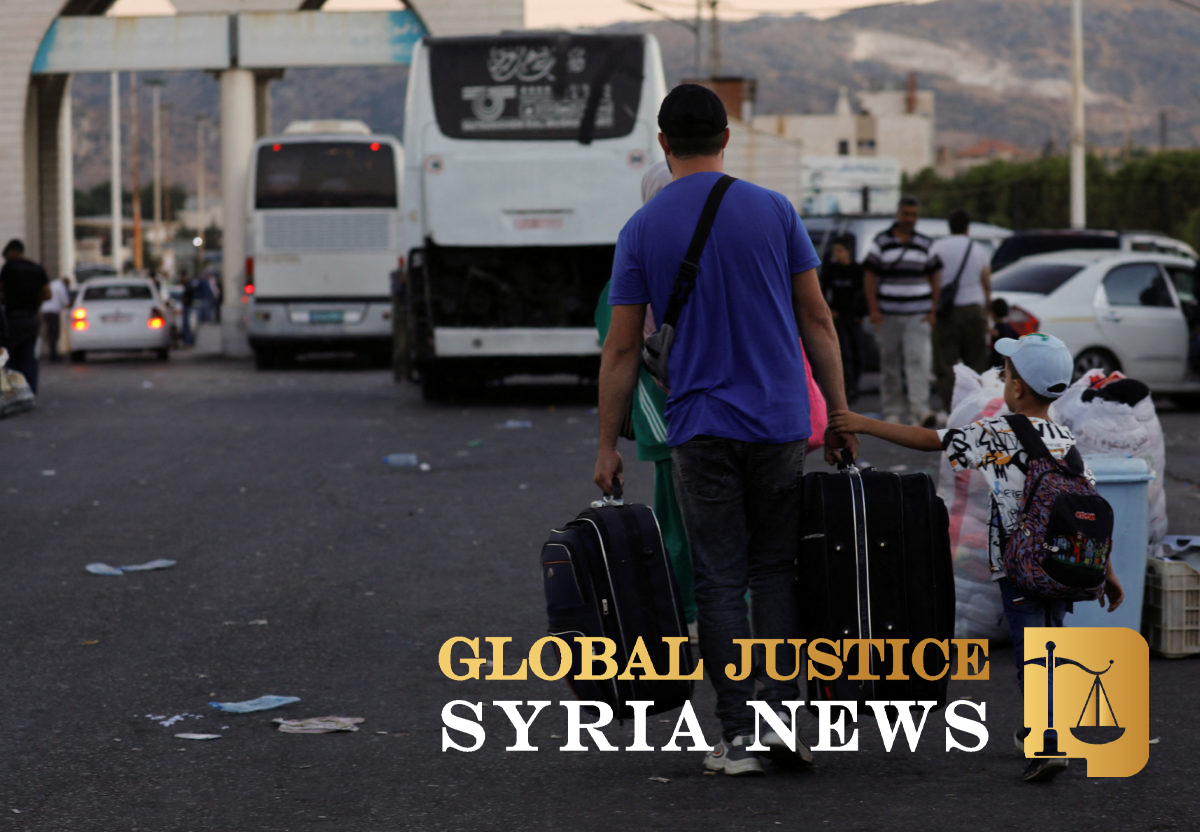As the conflict between Hezbollah and Israel intensifies, thousands of families are fleeing Lebanon, seeking refuge in neighboring Syria. Despite Syria’s own decade-long war, it now represents a relatively safer haven for those escaping the deadly airstrikes targeting southern and eastern Lebanon.
According to U.N. officials, thousands of Lebanese and Syrian families have already crossed the border into Syria, and the numbers continue to grow as the violence escalates. Israeli airstrikes, aimed at Hezbollah fighters and their weaponry, have killed over 600 people this week, including a significant number of women and children, local officials report.
A Striking Reversal
This mass exodus of families fleeing into Syria marks a striking reversal of circumstances. Since the onset of Syria’s revolution in 2011, Lebanon has hosted more than a million Syrian refugees. An initially peaceful uprising against the Assad regime spiraled into a devastating violent conflict that has yet to see a resolution. Now, it is Lebanon’s turn to seek refuge, as the situation deteriorates under heavy bombardment.
In recent days, lines of cars and buses stretched for miles from the Lebanese border to Jdeidet Yabous, Syria. Some families, unable to wait in the massive traffic jams, walked the rest of the way to the border. Upon reaching Syria, they faced additional delays, waiting for hours to be processed by overwhelmed border officials. Relief workers handed out food, water, mattresses, and blankets to those waiting to enter the war-torn country.
“Many will have to spend the night outdoors waiting their turn,” said Rula Amin, spokesperson for the U.N. refugee agency.
A Journey of Desperation
Among the refugees are both Lebanese citizens and Syrians who had previously fled the war in their home country. One Syrian refugee, Ahmed al-Halabi, shared his harrowing experience. Al-Halabi had fled Syria for Lebanon in 2014 and settled in southern Lebanon, only to be forced to flee again as airstrikes began raining down earlier this week.
“There were too many strikes and too much destruction,” al-Halabi said. “We barely made it; we’ve been on the road for three days.”
Lebanese families from areas heavily targeted by Israeli bombardment, such as the Bekaa Valley and the village of Arnoun, have also sought refuge across the Syrian border. Hussein al-Abdullah, a resident of Baalbek in the Bekaa Valley, described the airstrikes that drove him and his family from their home.
“We left with difficulty. There were bombs dropping above our heads,” said Mahmoud Ahmad Tawbeh, who fled with 35 family members to a rented house in Damascus.
Uncertainty Awaits in Syria
While Lebanon’s crisis worsens, Syria itself remains unstable. Though active fighting has largely frozen in many parts of the country, the war is far from over. For some, Syria offers the only option for immediate safety. Lebanese citizens, who do not need a visa to enter Syria, regularly visit the capital city of Damascus, where renting an apartment is significantly cheaper than in Lebanon. Some Lebanese families had even rented homes in Syria as a precautionary measure, preparing for the day they might need to flee.
However, for Syrian refugees returning to their homeland, the decision is fraught with fear. Many have been reluctant to return due to concerns they could be arrested for perceived ties to opposition groups or forced into the Syrian military. President Bashar al-Assad’s recent amnesty, issued on September 22, covers those who dodged compulsory military service, but similar amnesties in the past have failed to convince refugees to return.
“We don’t even have a house anymore. I don’t know where we will go,” said Nada Hamid al-Lajji, a Syrian refugee who returned with her family after living in Lebanon for seven years.
A Humanitarian Crisis Unfolding
The unfolding situation at the Syrian border is a stark reminder of the ongoing humanitarian crises that continue to plague the region. As families cross into Syria, many face uncertainty about their future. Meanwhile, Lebanon, which has hosted over a million Syrian refugees, now finds itself in the reverse position, with its own people seeking refuge across the border.
With no end in sight for the conflict between Hezbollah and Israel, the number of families making this journey is expected to increase in the coming days, leaving border officials and relief organizations struggling to cope with the growing humanitarian need.
As these families flee one war to seek refuge in the remnants of another, their plight underscores the devastating human cost of ongoing conflicts in the Middle East.
Sources: Associated Press, Africanews, U.N. Refugee Agency



















